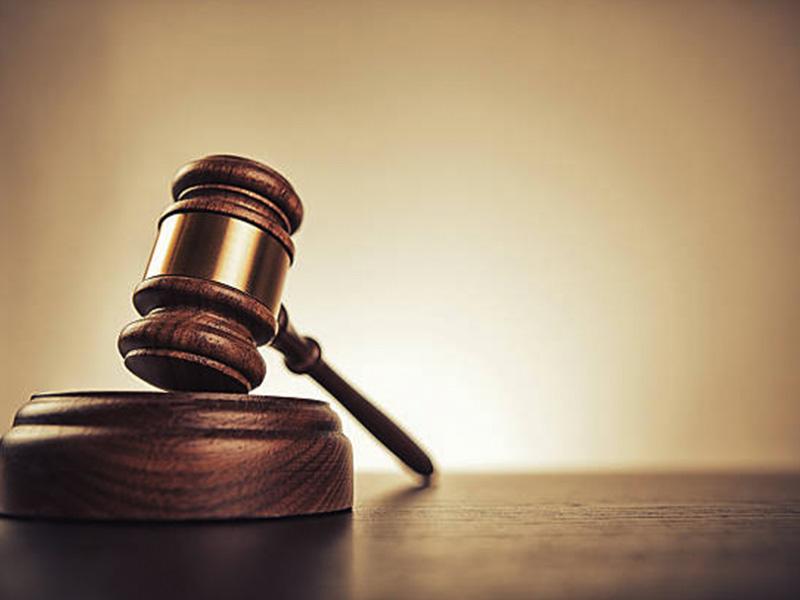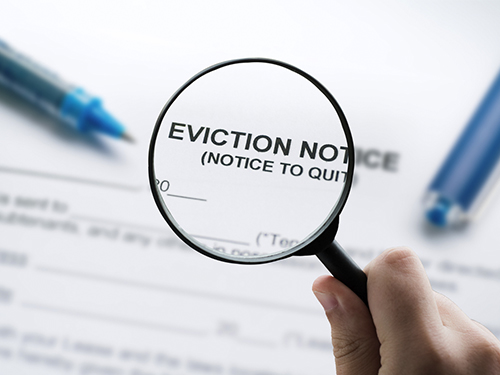
What to Do After a Judgment is Entered in Your Favor
Collecting On a Judgment
Winning a lawsuit in Maryland is a significant achievement — but collecting on a judgment is not always easy. A court entering judgment in your favor does not guaranty that you will receive payment. A judgment debtor (the person who owes you money) may try to delay paying the judgment, refuse to pay, or simply be unable to pay.
Maryland law provides tools to help the holder of a judgment collect what is owed. Here are some things to consider, once a court enters a judgment in your favor:
Wait For the Judgment to Become Final
In Maryland, most civil judgments become “final” and enforceable only after 10 days have passed following the date on which the court enters the judgment on its official court docket. If the losing party files an appeal or files a motion to alter, amend, or appeal the judgment, that will further put off the date on which you can start seeking enforcement. Once the judgment is final, you can begin using the collection methods allowed under Maryland law.
Request Information From the Judgment Debtor
To initiate the collection process, you can start by asking the judgment debtor to provide financial information voluntarily. Forms for doing so may be accessed through the courts’ website – mdcourts.gov
If the judgment debtor refuses to cooperate, Maryland offers a powerful tool, known as post-judgment discovery. Through this process, you can require the judgment debtor to disclose information about:
- Bank accounts
- Employment
- Real property
- Vehicles
- Income sources
- Other assets
Post-judgment discovery may include submission of written questions to the debtor called “interrogatories”, or submitting formal requests for documents to the debtor. Alternatively, or in addition, you can ask the court to require the judgment debtor to appear in court and answer questions under oath about their assets.
Writs of Garnishment
If a judgment debtor won’t voluntarily pay a judgment, garnishment is often the most efficient means to force payment. Once a writ of garnishment is served on a financial institution or other entity holding property belonging to the judgment debtor, the person in possession of the debtor’s property will be required to turn over the money or property to the holder of the judgment (subject to some available defenses), up to the point where judgment is fully satisfied, or the court orders otherwise.
Wage Garnishment
Maryland allows garnishment of a portion of the debtor’s disposable wage earnings each pay period. Once served with a writ of wage garnishment, the judgment debtor’s employer must withhold the garnished amount and send it directly to the holder of the judgment (sometimes through the court).
Bank Account Garnishment
The holder of a judgment also may garnish a judgment debtor’s bank account to gain payment of a judgment. Once served, the bank must freeze the account and respond to the garnishment.
Place a Lien On Real Property
A judgment entered by a Circuit Court in Maryland automatically becomes a lien on any real estate that is titled in the sole name of the judgment debtor, and is located in the same county as the Circuit Court. A judgment lien can be established against property located in another Maryland county only by filing appropriate papers with the court asking it to transfer a copy of the judgment from the Circuit Court of the county in which the judgment was entered to the Circuit Court in the county in which the subject property is located.
For District Court of Maryland judgments, you must file appropriate court papers to record the District Court judgment in the Circuit Court for the county in which the property is located, in order to establish a lien against the property. Once a judgment lien against real property is established, the property thereafter cannot not be sold, refinanced, or transferred unless or until the judgment is satisfied.
If necessary, you can also pursue a judicial sale of the debtor’s real property to satisfy a judgment, though this is less common, can be expensive, and requires court approval.
Levy and Sale of Personal Property
In some cases, you can cause the Sheriff to seize and sell a judgment debtor’s personal property—such as vehicles, equipment, or valuable goods—through a writ of execution. This allows the Sheriff to levy property, hold an auction, and apply the proceeds to pay off the judgment. This method of gaining satisfaction of a judgment is more complex and often requires assistance from an experienced litigation attorney to identify assets and navigate the procedural requirements.
Renew the Judgment Before It Expires
Maryland judgments are enforceable for 12 years after they are entered by the court, and as the holder of the judgment, you may thereafter renew the judgment for additional 12-year periods. However, the renewal must take place before the expiration of the 12-year term. If the judgment debtor has only limited assets when the judgment is entered, but might accumulate income or property later, renewing the judgment ensures your right to pursue the judgment into the future.
Understanding your legal options under Maryland law is important, but engaging the legal assistance of a qualified lawyer is fundamental to ensuring your best interests are protected. Lewicky, O’Connor, Hunt, & Meiser have represented countless Maryland residents in lawsuits and are experienced in the post-judgement process. If you have won a lawsuit and need help collecting on the judgment or need representation for an upcoming legal dispute, contact our office today to schedule your consultation.

Big Changes to Maryland’s Landlord – Tenant Law
Effective October 1, 2025, Maryland’s landlord-tenant laws have undergone significant changes that are intended to address long‐standing concerns about how residential evictions (for non-payment of rent, lease breaches, or hold-over tenants) are carried out in Maryland. Here are some important changes to the law that recently went into effect:
-
Notice to Tenant When Warrant of Restitution Issued
Under previous law, a landlord could obtain a warrant of restitution after a judgment for eviction (for non-payment, lease breach, or hold-over) and then proceed to repossess the property. The new law mandates that before the Sheriff executes the warrant of restitution, the landlord must provide written notice to the tenant when the warrant of restitution is issued.
Specifically:
- The landlord must send the notice at least six days before the scheduled eviction date.
- The notice must be posted on the front door and sent to the tenant by First Class Mail, postage prepaid. If the landlord has the tenant’s cellphone number or email address, electronic delivery of the notice is also required.
- The notice must contain specific language regarding the scheduled eviction date, the date the warrant of restitution was issued by the Court, information concerning the potential loss of personal belongings left in the home, the tenant’s right to redemption (if applicable), and contact information for the Maryland Court Help Center.
- If the landlord fails to comply, the court may vacate the warrant or delay execution of repossession.
-
Expiration and Execution of the Warrant
- A warrant of restitution must be executed within 60 days of its issuance; If not, it expires.
- There are limitations on executing evictions during certain extreme weather conditions (e.g., freezing temperatures, heat warnings, tropical alerts), to protect tenant safety.
If you are a landlord or tenant involved in a legal dispute, the best step you can take is to work with a knowledgeable attorney at Lewicky, O’Connor, Hunt, & Meiser who can help you navigate Maryland’s new legal landscape.

Mistakes People Make in Civil Lawsuits and How to Avoid Them
Civil lawsuits in Maryland can be complicated and challenging. While every case is unique, many parties in litigation fall into traps that end up costing them more money or weakening their position in court. Avoiding these common mistakes can make a difference in how smoothly your case proceeds—and perhaps whether you win or lose.
-
Waiting Too Long to Take Action
Civil lawsuits in Maryland are governed by statutes of limitation, which place firm timeline restrictions on bringing a lawsuit. If you wait too long to file, you may permanently lose your right to sue—even if your case is otherwise strong.
How to Avoid It:
- Speak with an attorney as soon as a dispute arises, or when you first discover the problem.
- Don’t assume the other side will “work it out” or that delays in filing suit won’t matter.
-
Trying to Handle It Without a Lawyer
Many people believe they can save money by representing themselves. While you can file a lawsuit on your own, civil lawsuits can be surprisingly complex. Mistakes in pleadings, missed deadlines, or incorrect procedures can harm or sink your case.
How to Avoid It:
- Consult with an experienced Maryland civil litigation attorney before you decide to proceed on your own.
- Even if you are thinking of representing yourself, at least consider consulting with a lawyer before making this decision.
-
Ignoring Court Deadlines and Procedures
Maryland courts enforce strict rules about when pleadings and documents must be filed and how they must be served. Missing a deadline or filing paperwork incorrectly can result in your case being dismissed—or judgment being entered against you.
How to Avoid It:
- Keep a detailed calendar of all deadlines.
- Consult with a lawyer who understands legal procedures and deadlines.
-
Not Preserving Evidence
Emails, texts, contracts, receipts, videos, and photographs can all be critical to your case. Too often, people delete or lose key evidence—or fail to gather it until it’s too late.
How to Avoid It:
- Save all communications and documents related to the dispute.
- Keep digital backups in case devices are lost or damaged.
- Share evidence with your attorney early.
-
Letting Emotions Take Over
Civil cases can get personal. But angry emails, threats, or outbursts only weaken your credibility and may even hurt your case.
How to Avoid It:
- Stay professional in all communications.
- Let your lawyer handle direct contact with the other side whenever possible.
- Focus on facts and legal strategy, not emotions.
-
Failing to Consider Settlement
Some clients insist on “having their day in court,” even when a settlement could resolve the case faster and with less expense. Litigation is costly, stressful, and time-consuming.
How to Avoid It:
- Keep an open mind about mediation or settlement negotiations.
- Remember that a fair settlement can often save you money and achieve your goals without the uncertainty of a trial.
Civil lawsuits in Maryland can be intimidating, but avoiding these common mistakes will give you a stronger chance of success. The best step you can take is to work with a knowledgeable attorney who can help you navigate Maryland’s civil court system and can guide you through the process. Contact the firm of Lewicky, O’Connor, Hunt, & Meiser today for legal guidance.

Court-Ordered Mediation in Maryland Civil Lawsuits
When a legal dispute arises, most people picture a courtroom battle where lawyers argue a case before a judge or jury. But in Maryland, many civil cases are resolved without ever reaching trial – thanks to mediation.
Mediation is a form of alternative dispute resolution (ADR) where the parties, often with the assistance of counsel, meet with a neutral third party (the mediator) to explore solutions and, ideally, reach an agreement. It’s often faster, less expensive, and less stressful than litigation.
Here’s what Maryland businesses and individuals should know about how mediation works.
When Mediation Happens
Mediation can take place at different points in the legal process:
- Before a lawsuit is filed – as a proactive way to avoid court.
- During litigation – often ordered by a judge after the case is initiated.
- After a judgment – in rare cases, to resolve disputes over enforcement.
In Maryland, many Circuit Courts and the District Court of Maryland have court-connected mediation programs. These courts frequently encourage or require parties to attempt mediation before the court will schedule a trial date.
The Role of the Mediator
A mediator is a neutral facilitator—not a judge and not an advocate for either side. The mediator’s role is to:
- Guide the conversation.
- Help clarify the issues.
- Encourage compromise.
- Explore creative solutions.
Importantly, mediators do not decide the case. The outcome is entirely in the parties’ hands.
The Mediation Process in Maryland
While each mediator has his or her own style, Maryland mediations generally follow this structure:
Step 1 – Opening Session
The mediator explains the ground rules: confidentiality, respectful communication, and voluntary participation.
Step 2 – Presenting Perspectives of the Parties
Each side has the opportunity to explain their position, concerns, and goals—without interruption.
Step 3 – Joint Discussion or Private Caucuses
The mediator may keep everyone together or meet separately with each side to discuss settlement options in private. Often the mediator will leave this decision to the parties.
Step 4 – Negotiation
The mediator helps bridge gaps by suggesting compromises, clarifying misunderstandings, and reframing positions.
Step 5 – Agreement or Impasse
If the parties reach an agreement, it is usually written down and signed by the parties.
If no agreement is reached, the case proceeds toward trial. If the mediation results in a settlement agreement, that agreement will be enforced by the court if the parties don’t abide by it.
Benefits of Mediation in Maryland Civil Cases
- Confidential – Unlike court hearings, mediation discussions are private.
- Faster and Cheaper – Resolves disputes in weeks or months, not years.
- Flexible Solutions – Parties can agree to outcomes a court might not be able to order.
- Preserves Relationships – Especially important for business partners, neighbors, or family members.
When Mediation May Not Work
Mediation is not always the best choice – especially in cases involving:
- Ongoing fraud or criminal conduct.
- A need for immediate injunctive relief.
- A party unwilling to participate in good faith.
- Cases involving domestic violence.
A Maryland attorney can help you decide whether mediation is in your best interest.
Mediation as a Smart First Step
In Maryland, mediation is often a cost-effective way to resolve disputes and maintain control over the outcome. Even if it doesn’t result in a settlement, it can clarify the issues and narrow the scope of litigation.
If you are involved in a civil dispute – whether it’s a contract issue, business disagreement, property issue, or personal matter – the law firm of Lewicky, O’Connor, Hunt & Meiser can help you prepare for mediation and protect your interests throughout the process.

When is it Time for Your Business to Call a Lawyer?
Owning and operating a business in Maryland can provide great opportunities, but along with these come legal obstacles and risk. At some point in the life of a business, disputes are likely to arise – whether with vendors, customers, employees, competitors, or even business partners. Small businesses understandably have concerns about incurring the expense of consulting an attorney, but knowing when to do so can mean the difference between protecting your rights versus dealing with bigger problems later.
Consulting an attorney at the appropriate time can:
• Save your business money,
• Protect your reputation, and
• Prevent small issues from becoming major liabilities
Some of the following triggering events may seem like obvious times to consult with an attorney, but you would be surprised how may businesses wait longer than they should to have a consultation:
1. If you or your company has been sued, or has been threatened with a lawsuit
If you or your business receives a court complaint, a cease-and-desist letter, or even notification of a credible legal threat, an experienced civil litigation attorney can help by:
• Reviewing the stated claims with you,
• Assessing your legal exposure to the stated claims (or potentially to other claims), and your defenses to the claims,
• Responding appropriately to the person that made the claims, consistent with applicable law, and
• Helping you avoid making costly mistakes or damaging admissions.
Early discussion of legal strategy helps businesses resolve disputes before they reach court, and to move quickly and efficiently if a lawsuit has been initiated.
2. If you need to enforce a contract, or someone else is accusing you of breaching an agreement
If another company or person fails to honor the terms of a business agreement – for example, by not paying invoices on time, breaching contract terms, or violating a non-compete obligation – or if such an accusation is leveled against your company, an experienced litigation attorney can help by:
• Evaluating the strength of your claims or defenses,
• Sending a formal attorney demand letter to the other party, and/or
• Filing a breach of contract lawsuit in the appropriate court – or filing a defensive pleading, if another party has accused you.
Experienced litigation attorneys are skilled in negotiation, and in courtroom rules and process, which gives your enforcement effort credibility from the start.
3. If you are involved in a dispute with partners or with other members of your limited liability company
Conflicts among business partners, LLC members, or shareholders in corporations are surprisingly common, and can quickly impact company operations. Common issues include:
• Disagreements about money or decision-making,
• Allegations of breaches of fiduciary duty, and
• Ownership disputes or attempts to force buyouts.
An experienced business litigation attorney can help you pursue or defend against lawsuits seeking business dissolution, injunctions, or damages for claimed breaches of fiduciary duty — and protect your stake in the business.
4. If you suspect fraud, misappropriation of funds, or unfair competition
If an employee or co-owner is engaged in fraud or misappropriation of company funds, or if a current or former employee or co-owner has breached a non-competition or non-disclosure agreement, or is misusing company trade secrets, you may need to act fast. An experienced litigation attorney can guide you through:
• Seeking temporary restraining orders or preliminary injunctions,
• Filing lawsuits for monetary damages or specific performance of contracts, and/or
• Preserving important evidence using court processes.
5. If you want to avoid future litigation
Sometimes the best reason to consult an experienced business attorney is to prevent future litigation. An attorney can review and suggest improvements to your:
• Corporate bylaws or LLC operating agreement,
• Contracts or vendor agreements,
• Employment policies and handbooks, and
• Customer service terms or disclaimers.
You want to spot potential disputes before they arise and draft agreements that stand up in court – saving you time and money in the long run.

Landlord Licensing Requirements in Maryland
If you are landlord, or thinking of becoming one, be sure to determine whether you need a landlord license. There is no statewide landlord licensure requirement in Maryland, and not all counties and municipalities require a landlord to obtain a license. Howard, Anne Arundel, Montgomery, Prince George’s, Baltimore City, and Baltimore Counties require landlord licensure. Some local municipalities, such as Bowie, Hyattsville, and Greenbelt, have specific licensure applications and processes.
Maryland law prohibits a landlord that does not possess an active and valid license from collecting rent from a tenant or evicting a tenant. In Howard County, prior to a entering into a residential lease with a tenant, a landlord must obtain and complete a license application issued by the Howard County Department of Inspections, Licenses, and Permits (RentalApplication_08.29.2023_Fillable_10.20.2023.pdf). Currently, Howard County only accepts landlord license applications that are mailed or delivered in person. The application fee in Howard County for a single unit dwelling is $93.50.
Following the submission of your license application, Howard County will send out an inspector to examine and assess your home to ensure that your home is compliant with the applicable County ordinance requirements (link to general inspection requirements: H02-NewRentalHousingChecklist Revised 12.21.22.pdf). Your landlord license will only be valid for two (2) years, and must be renewed.
If you are currently a landlord or you are thinking of becoming one, and have questions about the licensure process, an attorney may help you better understand your options and rights. If you have questions, please contact one of our attorneys at Lewicky, O’Connor, Hunt & Meiser, LLC, (410) 489-1996.

Protection From Threats of Violence Using Protective Orders and Peace Orders
If you are experiencing domestic violence, abuse, threats, harassment or stalking in Maryland, you may need to seek protection from the court in the form of either a protective order or peace order. Protective orders and peace orders are civil orders issued by a judge that order a person to refrain from certain acts against others. The relationship between the petitioner (the person seeking protection) and the respondent (the person alleged to have committed the prohibited act) ultimately determines whether a protective order petition or peace order petition should be filed.
A protective order should be filed in cases involving domestic / familial or intimate relationships such as (1) current or former spouses; (2) individuals who have been in an intimate relationship and have lived together for at least 90 days within the last year; (3) individuals related by blood, marriage, or adoption; (4) individuals who have a child together; (5) parents and children; and (6) vulnerable adults. You may also file a protective order on behalf of a minor child or vulnerable adult.
The grounds for a protective order include (1) an act that caused serious bodily harm; (2) an act that placed the petitioner in serious bodily harm; (3) assault in any degree; (4) rape or sexual offense; (5) attempted rape or sexual offense; (6) criminal stalking; (7) revenge porn; or (5) false imprisonment.
Protective orders last for up to one year but may be extended up to two years and even become permanent. Protective order petitions may be filed in either District Court or Circuit Court. If the courthouses are closed, the Court Commissioner will handle the initial hearing.
A peace order should be filed in cases in which the parties do not have any domestic / familial or intimate relationship such as (1) neighbors; (2) co-workers; (3) friends; (4) roommates (with no intimate relationship); or (5) any individuals who do not qualify to file for a protective order.
The grounds for a peace order include (1) an act that causes serious bodily harm; (2) an act that places the petitioner or the petitioner’s employee in fear of imminent serious bodily harm; (3) assault in any degree; (4) false imprisonment; (v) harassment; (6) stalking; (7) trespass; (8) malicious destruction of property; (9) misuse of telephone facilities and equipment; (10) misuse of electronic communication or interactive computer service; (11) revenge porn; or (12) visual surveillance.
Peace orders last up to 6 months and may be extended up to one year. Peace order petitions may be filed in District Court. If the courthouse is closed, the Court Commissioner will handle the initial hearing.

Maryland Has Lowered the Age of Court Jurisdiction Over Juvenile Cases
In Maryland, anyone under the age of 18 is considered a child / juvenile. Children who are charged with and/or commit crimes are not treated the same as adults. In fact, a criminal offense committed by a child is deemed a delinquent act – a delinquent act is any offense that would be considered a crime had it been committed by an adult. Once a child is proved to have committed a delinquent act, then that child will be considered an adjudicated delinquent and the juvenile court will make a disposition regarding that child, one that typically imposes some guidance, counseling, rehabilitation, and/or treatment.
After a child is arrested or is the subject of a complaint filed by the police, school, or private citizen, Maryland’s Department of Juvenile Services (DJS) will evaluate and assess the complaint – this evaluation and assessment will be performed by an intake officer. The child may be taken into custody by court order, lawful arrest, emergency protection, or as a runaway. Once a child is taken into custody, the child’s parent, custodian or guardian must be notified immediately. DJS may determine that an informal adjustment be used to address the matter rather than any judicial intervention – such as community service, individual / family counseling, substance abuse treatment, restitution, and/or referrals to other agencies for additional services. If DJS determines that judicial intervention is necessary, it will refer the matter to the State’s Attorney for the filing of a petition – should the State file a petition in juvenile court alleging that a child is a delinquent (and the child is not detained), the juvenile court will first conduct the fact finding hearing called an adjudication hearing to determine whether the child committed the offense – and if the juvenile court determines the child did commit the offense, the court will schedule a disposition hearing at which time the court will decide whether the child needs guidance, rehabilitation, and/or treatment.
Effective November 1, 2024, Maryland’s juvenile laws have changed – most significantly, children between the ages of 10 to 12 years of age may be subject to the juvenile court’s jurisdiction and may be adjudicated delinquent for particular offenses. Prior to this change, the juvenile court’s jurisdiction regarding delinquency only covered children who were at least 13 years of age.

Maryland Drinking & Driving Laws
Drinking and driving in the State of Maryland is illegal. There are two types of impaired driving offenses: (1) Driving Under the Influence (DUI) and (2) Driving While Impaired (DWI). It is also illegal to drive while impaired by drugs (even legal drugs), drugs and alcohol, or controlled dangerous substances. Driving with any combination of drugs and/or alcohol that prevent you from driving safely is illegal. If you are convicted of either of these impaired driving offenses, you face both criminal penalties and administrative/license sanctions.
1. Driving Under the Influence (DUI): A driver who has a blood alcohol concentration (BAC) of .08 or greater is assumed to be under the influence of alcohol. Maryland law calls a BAC of .08 or above “under the influence per se.”
If you are convicted of a DUI:
For a first offense, you face up to a $1,000 fine and up to one year in jail. Twelve (12) points will be assessed on your driving record and your license may be revoked for up to six (6) months. For a second offense, you face a $2,000 fine and up to two years imprisonment (with a mandatory minimum of five days). Twelve (12) points will be assessed on your license and your license may be revoked for up to one year. For two convictions within five years, a mandatory period of suspension will be followed by a minimum required period of participation in the Ignition Interlock Program. You may be required to participate in an alcohol abuse assessment and program.
2. Driving while Impaired (DWI): A driver who has a blood alcohol concentration (BAC) of .07 is assumed to be impaired by alcohol.
If you are convicted of a DWI:
For a first offense, you face up to a $500 fine and up to two months imprisonment. Eight (8) points will be assessed on your driving record, and you face a 6-month license suspension. For a second DWI offense, you face up to a $500 fine and up to one year imprisonment. Eight (8) points will be assessed on your driving record, and you face a license suspension of 9 to 12 months. The penalties are significantly higher if you are transporting a minor at the time of the offense or for a third offense.
It is illegal for any driver under the age of 21 to drink and drive – Maryland has a zero-tolerance policy for underage drinking and driving. A driver under the age of 21 who drinks any amount of alcohol and drives faces serious criminal and administrative / license sanctions – in fact, a driver under the age of 21 with a BAC of .02 may lose driving privileges altogether.

Driving Under the Influence (DUI) and Driving While Impaired (DWI)
In Maryland, there are two types of drinking and driving offenses — driving under the influence (DUI) and driving while impaired (DWI).
If your blood alcohol concentration (BAC) level is 0.08 (8%) or higher when tested after a traffic stop, you may be charged with a DUI. If your BAC level is 0.07 (7%) or higher, you may be charged with a DWI. It is also a crime to drive while impaired by drugs (illegal or legal) or a combination of drugs and alcohol. In Maryland, DUIs and DWIs are considered misdemeanor crimes.
If you are found guilty of either a DUI or DWI, you may be incarcerated, fined, and/or have your driver’s license suspended. The severity of the penalty will depend on many factors, including whether it is the driver’s first drinking and driving offense, and the driver’s BAC level, driving record, and age at the time of the offense. Another factor is whether the driver was transporting a minor at the time of the offense.
Aside from the potential criminal penalties, there are administrative sanctions that the Maryland Motor Vehicle Administration (MVA) may impose. When you have been charged with a DUI or DWI, your license will automatically be suspended. You will receive a temporary license that allows you to drive for 45 days. While a request for administrative hearing regarding your license suspension must be sent within 30 days, you must send your request for administrative hearing within 10 days of the traffic stop to ensure that your license is not suspended prior to your administrative hearing. If you don’t request an administrative hearing within 30 days, your license will automatically be suspended on the 46th day. An administrative law judge will preside at your hearing and impose any administrative sanctions, such as license suspension. At the administrative law judge’s discretion, and upon good cause shown, a license suspension may be modified to permit temporary driving privileges for things such as work or medical appointments.
In some circumstances, you may be entitled to participate in an ignition interlock system program through the MVA. An ignition interlock device would then be installed in your vehicle and monitor your BAC levels. While an approved third party may install an ignition interlock device, the MVA oversees the program and monitors your participation and progress.
If you have a commercial driver’s license (CDL), you are held to stricter standards regarding DUIs or DWIs. If your BAC level is 0.04 (4%) or higher while driving a commercial vehicle, you may be charged with a DUI or DWI. As a commercial driver, even if you are driving your personal vehicle when charged with a DUI or DWI, these charges and convictions may significantly impact your CDL and commercial driving privileges.
